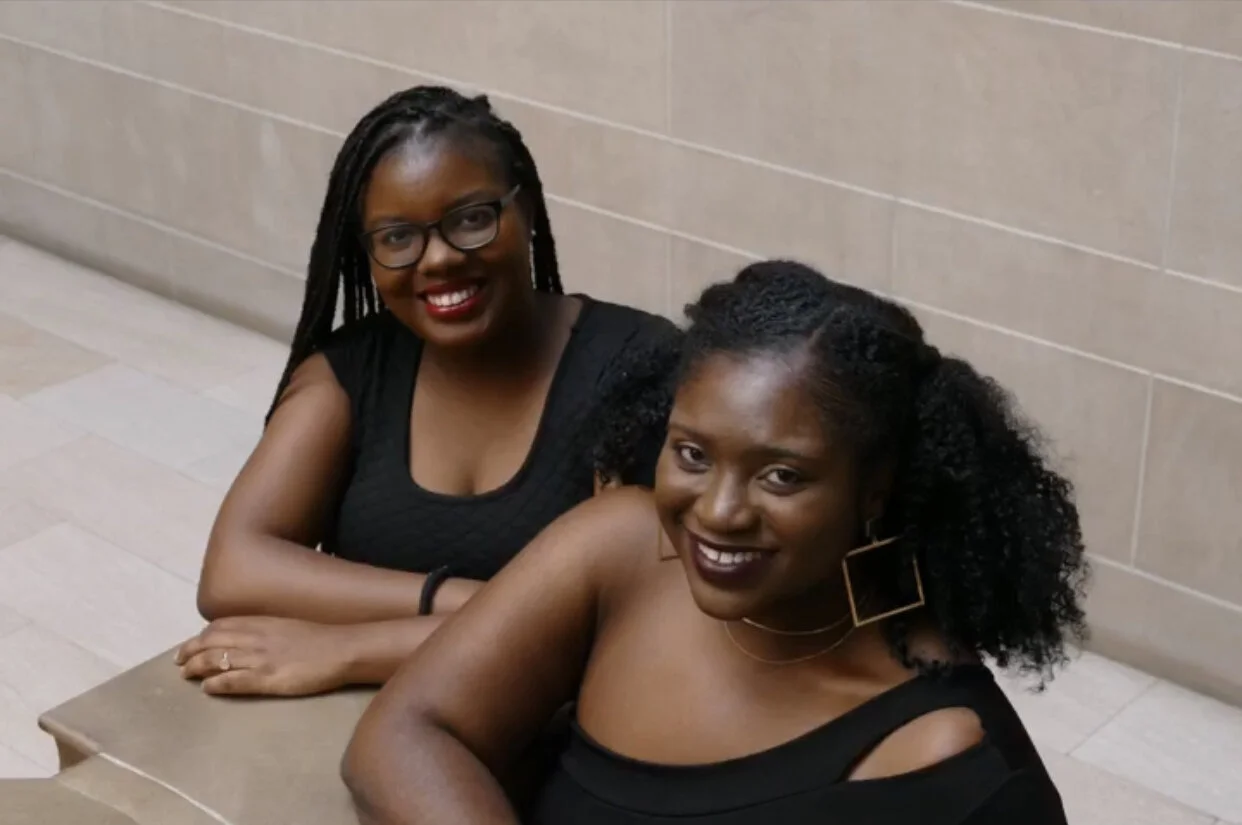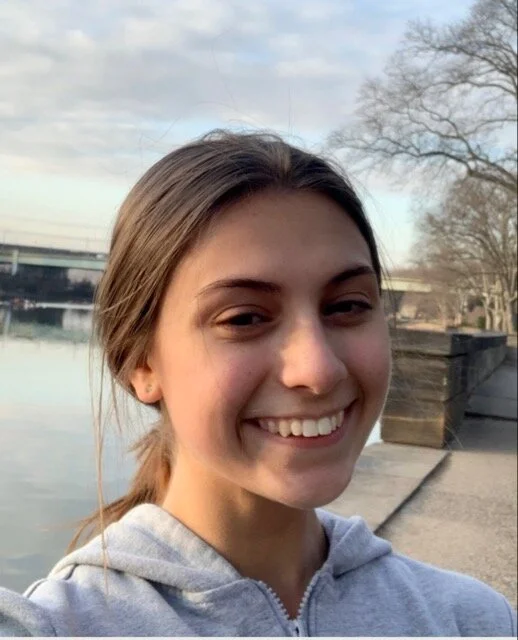The following blog post was written by Youth Advocacy Council (YAC) member, Maria Karakousis. Join YAC for the next session of their Music in Color series on Monday, March 29th.
On the last Monday of January, I had the opportunity to speak with bass player Dalanie Harris, co-host of the renowned Classically Black podcast and co-founder of the growing International Society for Black Musicians, and oboe player Mekhi Gladden, alumnus of the Atlanta Symphony Talent Development Program and current student of the Curtis Institute of Music. I did not just run into such talent and inspiration on the street — I don’t have that kind of awesome luck. Actually, I met these two wonderful people at the culmination of a month of planning and organizing with my fellow members of the Project 440 Youth Advocacy Council (YAC): the January Music in Color event. Where else would I be able to not only listen to, but converse with, people like Dalanie and Mekhi?
Dalanie Harris & Katie Brown of Classically Black. Harris joined YAC for their January session of Music in Color.
For those readers who are not familiar with Music in Color, this new series hosted by YAC on the last Monday of every other month aims to share with Philadelphia-area youth the origins, struggles, and ultimate success of minority classical musicians who are using their talents to help create the positive change they want to see in their communities. Each session consists of a live conversation between all who attend, which always include several truly amazing professionals. Our past three conversations have centered around specific subjects, but the overarching take-away from each Music in Color Zoom call is that no matter your race or identity, you can succeed in classical music and use it to make a positive impact on the places and groups that need it.
Have you ever heard the phrase, “where words fail, music speaks?” Hans Christian Andersen’s quote couldn’t ring more true, but I hope he wouldn’t mind my narrowing it down: “where words fail, classical music speaks” for the sake of this piece. Classical music has always been a part of my life and has never failed to help me through rough times. I feel so blessed to have been able to continue playing Chopin on the piano and Dittersdorf on the harp (thanks to the generosity of The Glissando Program) through the social distancing mandated by a pandemic that took my grandfathers. Though we classical musicians find joy in bringing the work of dead people to life, the elephant is in the room: classical music itself is dying, starved of appreciation beyond its shrinking circle of enthusiasts. We are now faced with a crucial question: how do we keep alive what we love?
The answer, Dalanie and Mekhi agree, lies in the enormous power of social media to make what seems distant and unattainable accessible to people, especially youth, who otherwise feel they have no point of entry into a group or field. Specifically, as we discussed during January’s session, we need to make classical music more accessible to Black and Hispanic kids, and to cast light on the abundance of work by composers of color that has been kept mostly in the dark, if we hope for the rebound of classical music. In our time, harnessing social media’s ability to market and project underrepresented voices is the clearest pathway to accomplishing both of these goals.
Dalanie began work toward these goals with her Classically Black podcast, which presents classical music in a way that is by and for Black people. Though she started the podcast just under three years ago, she has already received confirmation that she is helping to bridge the gap between classical music and Black culture, bringing Black people into the world of classical music when “they may not necessarily have an entry point.” In talking to Music in Color attendees about how she uses her social platforms to showcase Black musical achievement and make Black musicians feel seen, she shared, “we’ve gotten a couple messages over the years saying, ‘You know, I really felt alone in classical music until you said X-Y-Z...’ that’s really affirming to hear that people feel that way listening to our show.” For Dalanie and Mekhi, social media is intuitively their tool to create and foster community. As Mekhi put it, “music is inherently social, so it makes sense that it passes so easily through social media.” Dalanie told us that this strong sense of community present across social media platforms is especially important when trying to “connect with each other because a lot of [minority] people may feel like they are the only one in classical music” and when uplifting and upholding the work of underrepresented composers.
According to Mekhi, the most important aspect of social media that has incredible potential to foster social change is that it begets “this constant flow of information that helps you expand your horizons.” In order to expose her audience to new Black players and composers, Dalanie explained, she herself has had to first seek out and expose herself to that because she’s “just a person in the classical music industry too” whose classical music education did not emphasize the work of Black musicians. “We all know that there’s plenty of music out there and we need to highlight key voices,” said Mekhi. Social media is the door to finding that music and those voices. That is why he has committed himself to live streaming recitals featuring pieces composed by friends or little-known composers and configuring his social media feeds to include more of the “music written by people who have had their voices stifled by the canon [of repertoire] and such that just needs to get performed.” The first step is getting those kinds of mostly unheard pieces written by underrepresented composers out there into the virtual human web. That will lead more people to perform it, which will lead more people to realize that there is so much beautiful music by minority composers that they are missing out on, and which we should emphasize and rally around if we want to not only help classical music survive, but push it to thrive.
Well readers, that is what I learned and have now reflected upon following the January 2021 Music in Color session. Its duration of one hour felt too short a time to spend talking with Dalanie and Mekhi, but I hope you agree that what was said in this open discussion gives impetus to deeply consider and implement new perspectives regarding music in our personal lives and in our communities. If you enjoyed reading this post, think about how much you would enjoy actually participating in our next Music in Color session on March 29th, 2021. Email yac@project440.org with any questions or comments about this post or how to register for our March event. On behalf of all of us at YAC, we hope to see you then!
This blog post was written by Youth Advocacy Council Member, Maria Karakousis. Maria is a high school junior attending J.R. Masterman in Philadelphia. She loves playing the piano and the harp (thanks to the incredible generosity of the Glissando Program of the Curtis Institute of Music Lyra Society) and immersing herself in classical music. She is very passionate about using the positive power of music to improve society, and is profoundly grateful for the opportunity to help empower other Philadelphia youth to do the same through the Project 440 Youth Advocacy Council. In between school, volunteering, practicing her instruments, her jobs (including teaching piano), and biomedical research, Maria enjoys going on runs along the Schuylkill River and spending time with her family.



